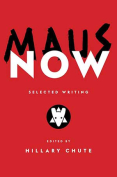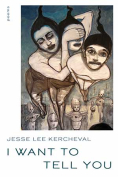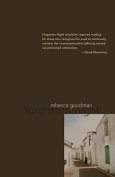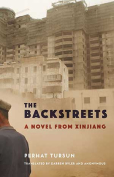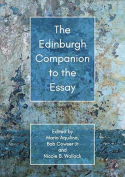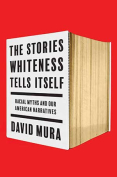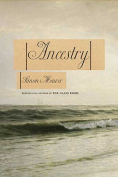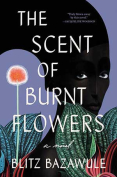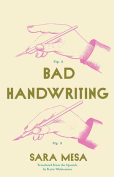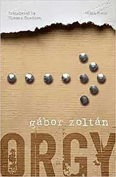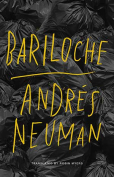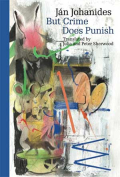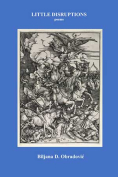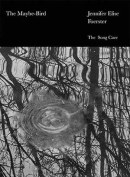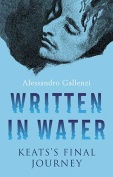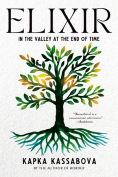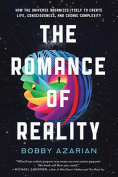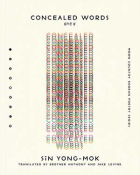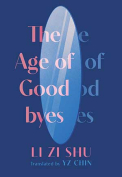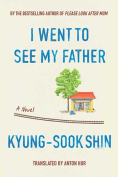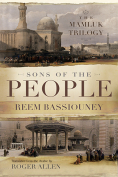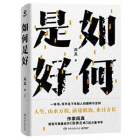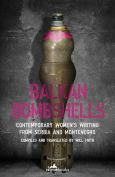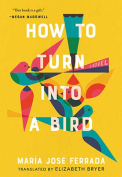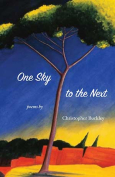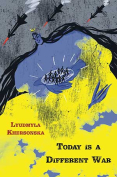I Went to See My Father by Kyung-Sook Shin
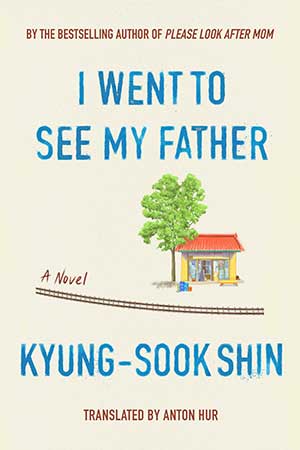 New York. Astra House. 2023. 304 pages.
New York. Astra House. 2023. 304 pages.
Kyung-Sook Shin’s I Went to See My Father, deftly translated by Anton Hur, is a quietly epic contemplation on grief and the relationships, responsibilities, and expectations between family members. Visually, the text comprises long blocks of prose punctuated by single-line paragraphs, an effect that mirrors many of the narrator’s stark realizations throughout the novel: the realization that her parents are mortal, the realization of the depth of her father’s trauma, the realization of the depth of her own grief.
The novel, which is divided into five hefty chapters, is primarily written from the first-person perspective of a middle-aged woman and writer named Hon. Hon’s voice is cleverly supplemented by additional voices—through letters between her eldest brother and father in chapter 3 (Inside the Wooden Chest) and through written and transcribed interviews with various friends and family members of her father in chapter 4 (Talking about Him), a project she ostensibly undertakes when she decides to write about him. These multiple perspectives help both the reader and Hon to see her father’s identity as multidimensional and existing beyond his role as a parent and head of the household.
As Hon seeks to understand her father’s life and who he was before the trauma of war, political mayhem, and loss, she also experiences the ways in which parent-child relationships shift over time, evidenced by how Hon and her siblings find themselves newly in the roles of nurturers, caregivers, and protectors of their parents. I Went to See My Father makes out the bond between parent and child as a debt that is repaid, a sentiment that may be familiar for more collectivist cultures where there are strong societal expectations that children care for their parents in old age. Hon first truly experiences this flip in roles when she witnesses her father cry, an unsettling experience that unmasks expectations around both parental stoicism and strength as well as the particular expectation that men moderate their emotions. Hon later reflects that throughout her childhood, “Father’s presence was enough to dispel the most all-consuming fear. . . . I was now by Father’s side but I couldn’t dispel any of his fears, not even in the slightest.” Hon’s fear and sense of inadequacy as it relates to caring for her father echoes the fear he once felt in being responsible for feeding his children.
Debt surfaces in other ways, such as the debt to one’s country that is fulfilled by completing mandatory military service. Debt also surfaces in Hon’s father’s relationship with the oxen who ensure his family’s survival and in how he gifts oxen to others, perhaps as repayment for the ox he received in his childhood. There is a sense that these responsibilities are inherited and not bound by time or to individual bodies. Hon’s father meticulously cares for his family altar and cemetery, a gesture that can be interpreted as his continued repayment of the care they once provided him. As the book progresses, Hon witnesses her father wrapping up his affairs: arranging for another’s funeral, confessing guilt to his dearest friend, arranging for his belongings to have homes and for his son to complete his remaining chores. He feels particularly guilty about leaving behind responsibilities, a sentiment that deepens the sense of guilt he already seems to feel from needing to be cared for by his daughter.
Though the fragments of different perspectives create the sense of a father who is heavy with debt and responsibility, they also serve as Hon’s doorway into who her father might have been—someone joyful, caring, and in love—if not weighed down by the political instability of his time. In a poetically confessional voice typical of much of Shin’s writing, Hon reflects: “My memories of Father exist in disparate and elusive fragments like the sound of wind on some days, of the war on some days, of the flying bird on some days, of the snowfall on some days, and on some days, of the determination to keep living. And what of all the things suppressed within him, never expressed, disintegrating in silence, unspoken?” Though her father never opens up in quite the way she may have hoped, she instead gets to know him through the people who loved him and through observing the ways in which he interacts with those around him.
I Went to See My Father pokes at the ways in which we can never truly know our parents because to know them would require seeing them through someone else’s eyes, eyes that are free from the debt of owing them your own life. Hon attempts to reconcile her memories of her father with what he shares and what she hears from others. It’s a process of grieving her father’s aging as well as her own. A process of understanding his grief. A process, not quite of healing, but of being content with having lived.
Lauren Bo
St. Louis
